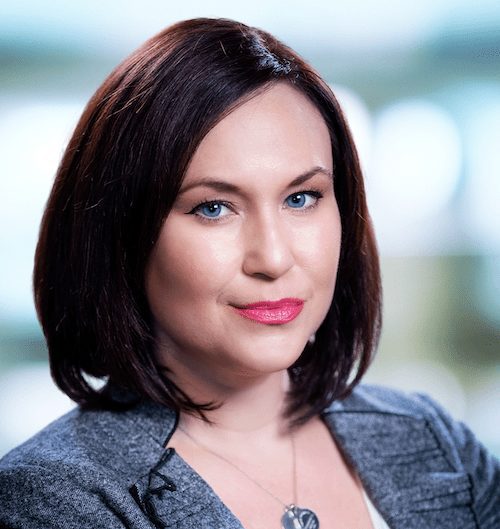
Editor’s note: Jessica Kinninger was named Executive Assistant of the Year (Private Company) on Nov. 12.
The finalists for WashingtonExec’s Pinnacle Awards were announced Oct. 8, and we’ll be highlighting some of them until the event takes place virtually Nov. 12.
Next is Executive Assistant of the Year (Private Company) finalist Jessica Kinninger, who’s executive assistant to the chief digital officer and chief technology & strategy officer at LMI. Here, she talks success in her current role, overcoming career struggles and career advice.
What has made you successful in your current role?
The keys to my success have been my resourcefulness, drive and tenacity. I’ve learned so much from those around me. Without drive, I would not give every task my best effort. Even when my best falls short, I learn from the experience and keep going. Every day is a new chance to do better than yesterday.
What are you most proud of having been a part of in your current organization?
I take a great pride in LMI’s focus on its people. LMI readily acknowledges that, without our people, the company would cease being such an encouraging place to work. Coming to LMI as part of the Hiring Our Heroes Military Spouse Fellowship Program, I was immediately welcomed into my assigned group. This was my first experience with a corporate job. I thought it was going to be like the military, where I felt like a number — one of many.
That was not the case. I had purpose; I was accepted for my unique background — not just because I am a veteran and the spouse of an active duty service member, but because of my skills and how my personality fit with others in the company.
What are your primary focus areas going forward, and why are those so important to the future of the nation?
My primary focus is to act on the things I believe in. First, as a mother, I find it abhorrent that so many children don’t have regular access to food. I plan to increase my volunteer time to do whatever I can to fix this. Second, as an avid hiker and outdoor enthusiast, I’ve seen firsthand that more needs to be done to combat environmental degradation.
Neither of these issues can be solved overnight or with the resources at my disposal alone. However, by electing the right leaders and encouraging others to participate, progress can be made.
What’s one key thing you learned from a failure you had?
I have had many failures in my life as well as many successes. However, if you find the lesson from the failure, you can turn it into future success. A lot of people say this, but I know it’s true from my own experiences.
In my first career, I was a geologist. I devoted many years to researching one of the most unique geological formations in the world: megaspherulites. These phenomena are from 1 to 6 meters across and occur in less than 10 locations worldwide in volcanic environments. After several years of field work, I wrote an abstract on the structural geology of the one at my location in Colorado. I had a lot of time in the field, self-study, hubris and only two associate degrees. As part of the publication process, I was required to present my abstract during a technical session at a conference.
Everything was going well until I realized that everyone else in the room had a Ph.D. Many in the audience were more than 20-year veterans of volcanology. After my presentation concluded, an attendee asked about the formation of megaspherulites. I should have known the answer, but I froze.
Once I regained my composure, I said the question was a good one, but still could not come up with an answer. Despite my embarrassment, I wrote down his question and turned that experience into a learning opportunity.
Since then, I never go into any speaking engagement thinking that I know better than anyone else. Having done my homework, I am humble and readily acknowledge when I do not know something. I learned to be human, flawed and fallible and I am a better person because of that experience.
What was your biggest career struggle and how did you overcome it?
My biggest career struggle was pursuing my education as a military spouse. I have attended five colleges and universities. I have had two unrelated majors. Although it took me 10 years (and a sharp pivot from geology to marketing), I never wavered.
I want not only my children but other active duty spouses to know that they can have a career outside of teaching and nursing. You can be productive and can feel good at the end of the day. But it takes tenacity.
What’s your best career advice for those who want to follow in your footsteps?
The best career advice that I can give is this: Have a realistic goal and never give up. I do not have a Ph.D. in volcanology as I imagined 15 years ago, but I have a career that I am proud of.
The sense of worth that comes from a hard-won victory is irreplaceable. Hard work and overcoming adversity are the best teachers and the best ways to gain true confidence.

